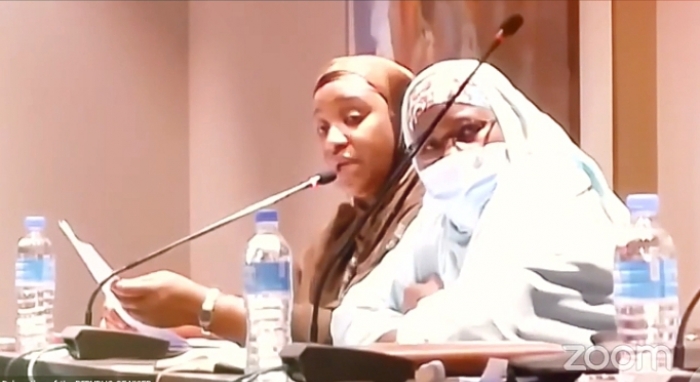Credit : ISHR

ACHPR68 | Periodic review of the Republic of Niger
Niger is one of the few States in Africa to fulfill its reporting obligations to the African Commission on time. In that regard, the Republic of Niger, after its previous review in 2017, submitted its 15th Periodic Reports covering the period 2017-2019. The report presents the progress made by the country regarding the state of human rights in Niger.
On 21 and 23 April 2021, in compliance with article 62 of the African Charter, the African Commission reviewed the 15th reports of the Republic of Niger on the legislative, administrative and political measures taken with a view to give effect to human rights guaranteed by the African Charter.
Ahead of the 66th ordinary session of the African Commission, ISHR along with the Collectif des Organisations de Défense des Droits de l’Homme et de la Démocratie (CODDHD) submitted a shadow report for the review of Niger on the situation of human rights defenders in Niger.
During the presentation of their report, the delegation of Niger highlighted the efforts made by the country to implement the recommendations made by the African Commission since its previous review in 2017. Some recommendations have already been implemented, notably concerning the ratification of international and regional treaties, while others are in the process of being implemented, notably the legislation for the protection and promotion of the rights of defenders. On the other hand, the recommendations concerning the ratification of the Maputo Protocol, the lifting of reservations to the CEDAW, and the abolition of the death penalty have not yet been implemented due to religious convictions and lack of consensus in the country.
Commissioners then asked additional questions to those provided in the general observation. The Country Rapporteur, Commissioner Maya Fadel, asked questions on the specific issue of death penalty as the penal code continues to recognise it. “How are awareness-raising campaigns on the death penalty organised and which NGOs are involved in those campaigns?” she asked. She ended by requesting that the government of Niger grant the African Commission a country visit by 2022.
On the specific situation of human rights defenders, the Special Rapporteur on human rights defenders and vice-chairperson of the African Commission, Commissioner Rémy Ngoy Lumbu noted that three demonstrations had been banned in 2019 and pointed out that demonstrations are repressed by the police. “What kind of trainings are provided to civil society by the State? How can CSOs finance their participation in these trainings? What measures are taken to ensure an enabling environment for the conduct of the work of defenders? Following the recommendations made by the African Commission in 2017, where is the process of adopting a law on the protection of defenders at? Finally, on Freedom of Association and Assembly (FOAA), is the State aware of the guidelines on FOAA and what steps are being taken to ensure that the current legal framework complies with them and to prevent the excessive use of force by police during demonstrations?” he asked.
Since 2015, Niger has been confronted with security and environmental challenges, and issues related to the status of women. Nevertheless, Niger remains dedicated in implementing other recommendations of the Commission adopted in 2017 and to submit a report on the implementation of the Kampala convention
The Chair of the Commission, Commissioner Solomon Ayele Dersso, concluded by congratulating Niger on its efforts to guarantee the rights enshrined in the African Charter He emphasised that Niger should make the necessary efforts to include, in their next report, information on the implementation of the Kampala Convention and that the African Commission would like to see the law on human rights defenders adopted in 2021. He also asked the delegation to let the African Commission know how they can support them in moving towards the adoption of the Maputo Protocol. Finally, he invited the National Human Rights Commission of Niger to make statements at the ordinary sessions of the African Commission.
